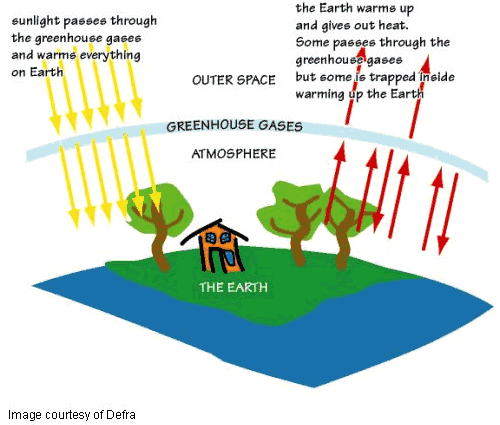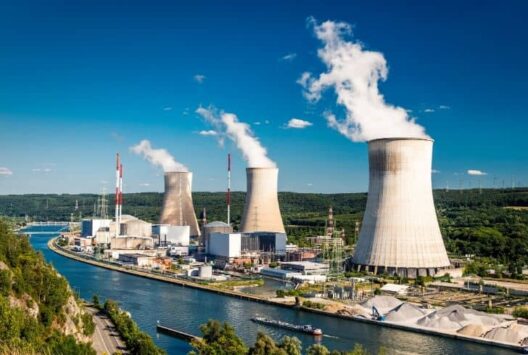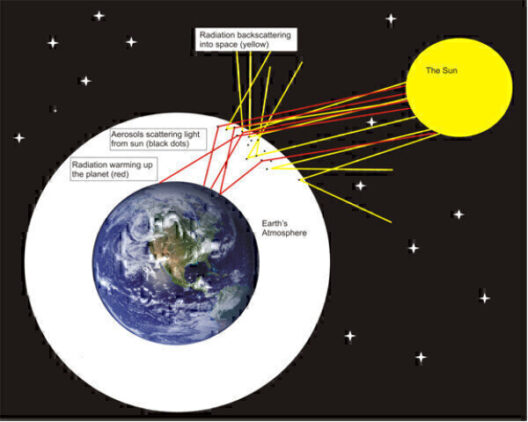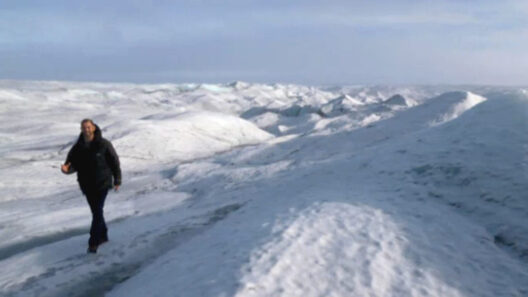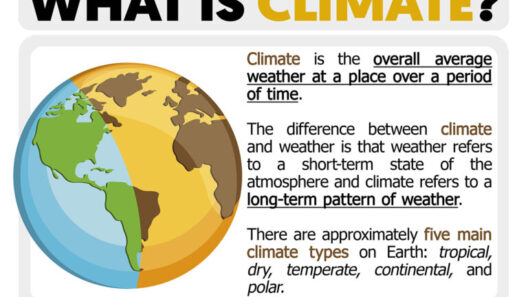Climate change is an insistent specter looming over contemporary society, perpetuating debates that evoke both fervent conviction and profound anxiety. The discourse surrounding its causes is punctuated with one pressing question: Is climate change occurring naturally, or is humanity to bear the brunt of the blame? This inquiry delves into a complex interplay of scientific inquiry and socio-cultural factors that shape our understanding of climate dynamics.
To dissect this issue, one must first appreciate the historical context of Earth’s climatic shifts. Over geological time scales, the planet has undergone significant changes in climate, attributed to natural phenomena such as volcanic eruptions, solar radiation fluctuations, and variations in Earth’s orbit and axial tilt. These processes are inherently long-term and encompass epochs of warming and cooling, with the most recent Ice Age ending approximately 11,700 years ago. The Earth’s climate has always been somewhat volatile, oscillating between periods of glacial and interglacial stability.
In light of these historical realities, a valid assertion could be made that climate change is, to some extent, a natural occurrence. Yet, juxtaposed against this backdrop is the evidence of anthropogenic influence—human actions that exacerbate the natural processes. The genesis of the Industrial Revolution heralded an era marked by exponential increases in greenhouse gas emissions, primarily carbon dioxide and methane, resulting from fossil fuel combustion, extensive deforestation, and industrial activities. Such climactic alterations are not mere statistical anomalies; they manifest as alarming trends, including rising global temperatures, melting ice caps, and an increasing frequency of extreme weather events.
The steadfast rise in atmospheric CO2 concentrations is particularly illustrative. Current levels exceed 400 parts per million, a stark contrast to pre-industrial averages of approximately 280 ppm. This escalating trend is not merely the result of natural variability; it is unequivocally tied to human endeavors since the mid-18th century. The Intergovernmental Panel on Climate Change (IPCC) has decisively articulated that “human influence has warmed the atmosphere, ocean, and land.” This acknowledgment underlines the veracity of the assertion that humanity plays a pivotal role in the escalating crisis.
Yet, it is imperative to dissect the narratives that dominate public perception. Many individuals are drawn to the notion of natural climate change due to a desire for comfort and absolution; it is often easier to believe that climatic fluctuations are beyond human control. This apprehension can be traced to the phenomenon of cognitive dissonance, where individuals grapple with the existential dread and moral dilemmas posed by climate change. The ease of attributing climate instability to natural cycles rather than human activities often provides a psychological refuge against the daunting responsibility of enacting change.
Moreover, the portrayal of climate change in popular media frequently oscillates between sensationalism and understated narratives, further muddling the discourse. The media’s focus can lead to a disconnect in understanding the scientific consensus on climate change. The danger lies in the proliferation of misinformation, which cloaks the unequivocal evidence. It fosters ambivalence at a critical juncture where collective action is imperative. The failure to delineate the distinctions between the natural rhythms of Earth’s climate and the accelerated changes induced by human activity often results in inaction—a perilous stance given the trajectory of future climatic events.
Opponents of the anthropogenic climate change narrative often invoke uncertainty in climate modeling and predictions as a rationale for their skepticism. They argue that these models are inherently flawed and that scientific understanding of the climate system is incomplete. While it is true that uncertainties exist within climate science, those uncertainties are systematically encapsulated, allowing scientists to provide robust forecasts about potential impacts. A margin of error does not negate the essential truth that human emissions are catalyzing a rapid acceleration of climate change results that would otherwise unfold over millennia.
Furthermore, normalization of denialist rhetoric can lead to a dangerous paralysis in policy-making. When critical discussions are overshadowed by misinformation about the credibility of climate science, the vital steps needed to mitigate the impending crisis are delayed. Legislative frameworks designed to reduce emissions and foster sustainable practices are often stalled by discord and apprehension, intensifying the urgency for cohesive, informed action.
The ramifications of ignoring the anthropogenic contribution to climate change are profound. Collapsing ecosystems, rising sea levels, and shifts in weather patterns disproportionately affect marginalized communities, exacerbating existing social inequalities. These vulnerabilities are not merely abstract discussions; they are tangible consequences faced by millions. The intertwining of climate justice with the conversation surrounding climate change must be acknowledged, for the impacts of inaction will be felt most acutely by those who are least equipped to adapt to its effects.
In conclusion, while an undeniable historical precedent exists for natural climate variability, the evidence unequivocally suggests that recent shifts in climate are predominantly driven by human activities. The intersection of scientific data, socio-cultural dynamics, and media portrayal ensures that discourse around climate change remains complicated. A robust understanding of these multifaceted interactions is essential for mobilizing society towards actionable change. Dismissing humanity’s responsibility in climate change is not only misleading; it fundamentally impedes our collective ability to address one of the most critical challenges of our time. It is incumbent upon all sectors of society to embrace their role in nurturing a sustainable future, shunning complacency in favor of proactive engagement.



